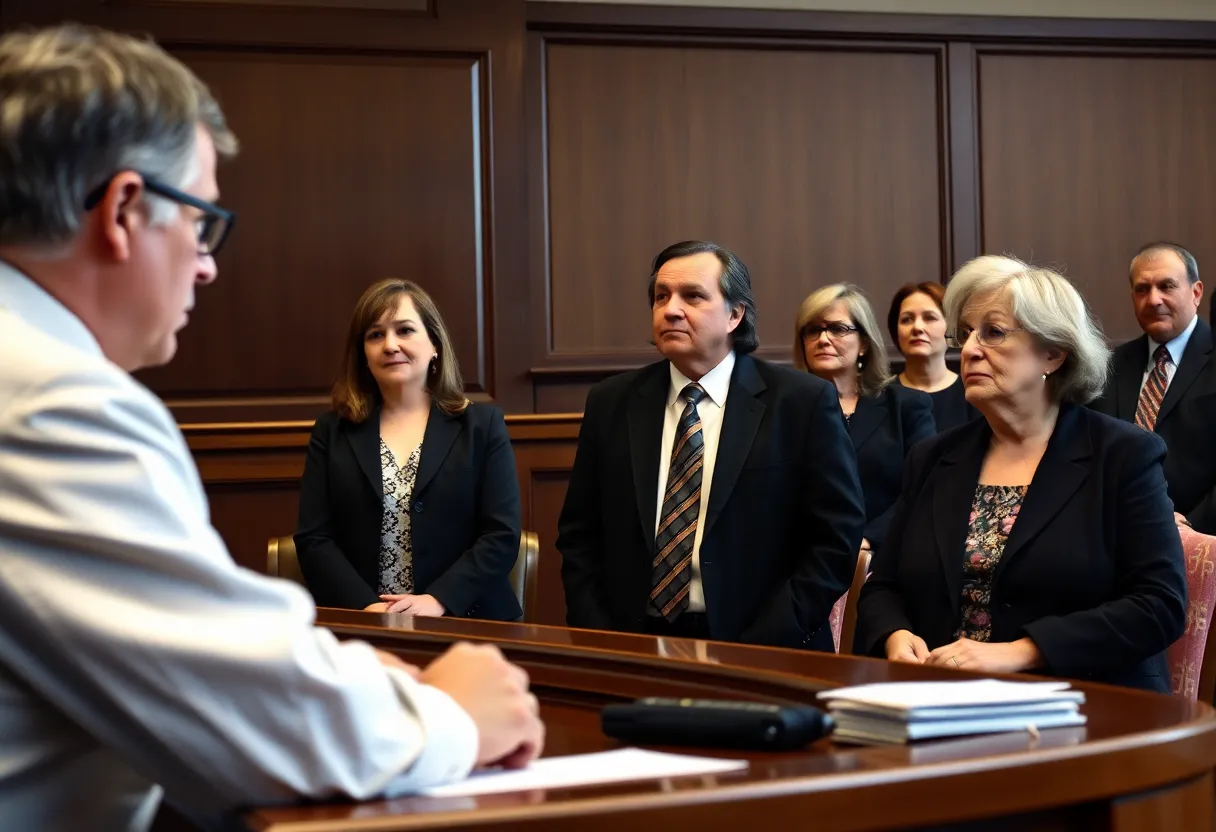New Controversy in the Battle for Mesothelioma Claims
In a city buzzing with legal discussions, the issue of asbestos liabilities has taken center stage. Recent actions from companies like Georgia-Pacific’s unit, Bestwall, have sparked outrage from victims’ groups who argue that these strategies are undermining the very essence of justice. At the heart of the matter is a maneuver known as the Texas two-step.
What is the Texas Two-Step?
The Texas two-step is a controversial corporate strategy where financially sound companies split into two entities. One entity takes on all the liabilities – in this case, associated with dangerous asbestos exposure – and it then files for bankruptcy. This allows the original company to shield its valuable assets and continue operating without being overwhelmed by financial claims from victims. It’s a complex maneuver that many see as a way for corporations to dodge their responsibilities.
In this instance, companies like Georgia-Pacific and Trane Technologies are under scrutiny for using this strategy to avoid compensating those impacted by mesothelioma, a deadly cancer linked to asbestos exposure. Critics argue that this approach blatantly misuses bankruptcy laws, leading to an unfair situation for the victims.
A Stand Against Injustice
The official committee of asbestos personal injury claimants has taken a firm stand against this strategy. They have recently filed an amicus brief to the Fourth Circuit Court, asking judges to reject Bestwall’s attempt to file for bankruptcy. The argument presented is compelling; the committee insists that Bestwall is not in financial distress, thus making their plea for bankruptcy an abuse of the system.
In their brief, the committee claimed that the actions of Bestwall are not just inequitable, but also grotesquely unfair to the sick and dying individuals who are still seeking justice. They argue that these maneuvers disenfranchise victims and violate the core principles of equity in bankruptcy. This creates a rift in the understanding of what bankruptcy should serve—namely, providing a fresh start while ensuring that all creditors, especially those adversely affected, are heard.
Tracking the Developments
As the Fourth Circuit deliberates this critical case, victims of mesothelioma are keeping a close watch. Many are hoping for a ruling that recognizes the inherent unfairness of such corporate strategies. Meanwhile, legislative efforts are underway in Congress. Some senators are advocating for measures that would empower courts to dismiss these kinds of bankruptcy applications, reinforcing the push for accountability in large corporations.
The Bigger Picture
At its core, this situation highlights a troubling trend within corporate America, where profitable companies use their resources to shuffle liabilities and protect their interests rather than those of injured workers and their families. It raises important questions about the rights of victims versus the tactics employed by corporations seeking to protect their bottom line.
For individuals and families affected by malignant mesothelioma, there’s a personal stake in these legal maneuvers. In the face of such daunting health challenges, the stress of fighting for justice against powerful corporate entities can feel overwhelming. That’s where resources like the Patient Advocates at Mesothelioma.net come in, providing invaluable support to those seeking compensation and care. If you or someone you love is facing a mesothelioma diagnosis, reaching out for help is crucial.
In Conclusion
The conversation surrounding the Bestwall bankruptcy case is far more than just legal jargon; it’s about ensuring that real people, afflicted by devastating illnesses, receive the justice they deserve. As the court makes decisions and as lawmakers work to close loopholes that allow for such corporate strategies, everyone involved is reminded of the importance of fairness in law and the need for accountability from those responsible for causing so much harm.














